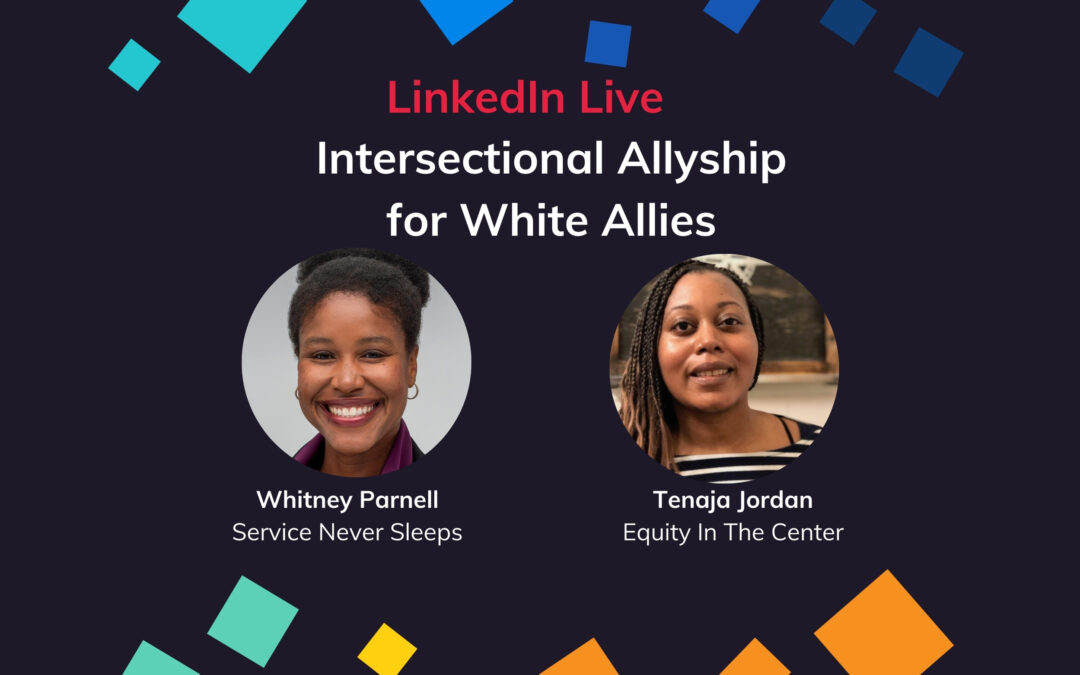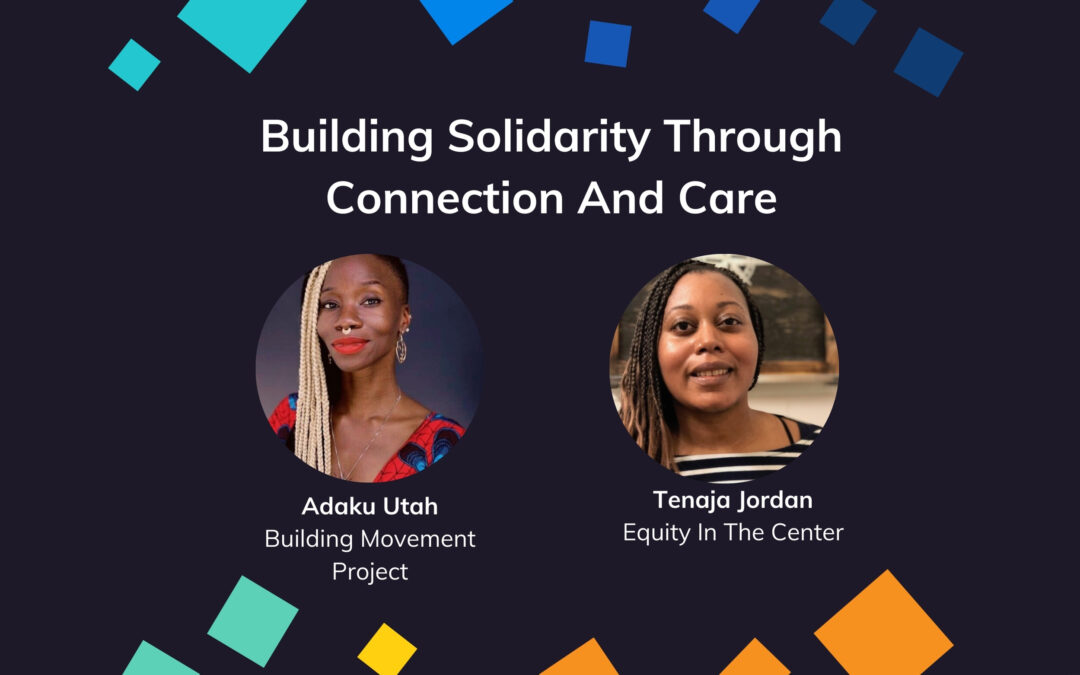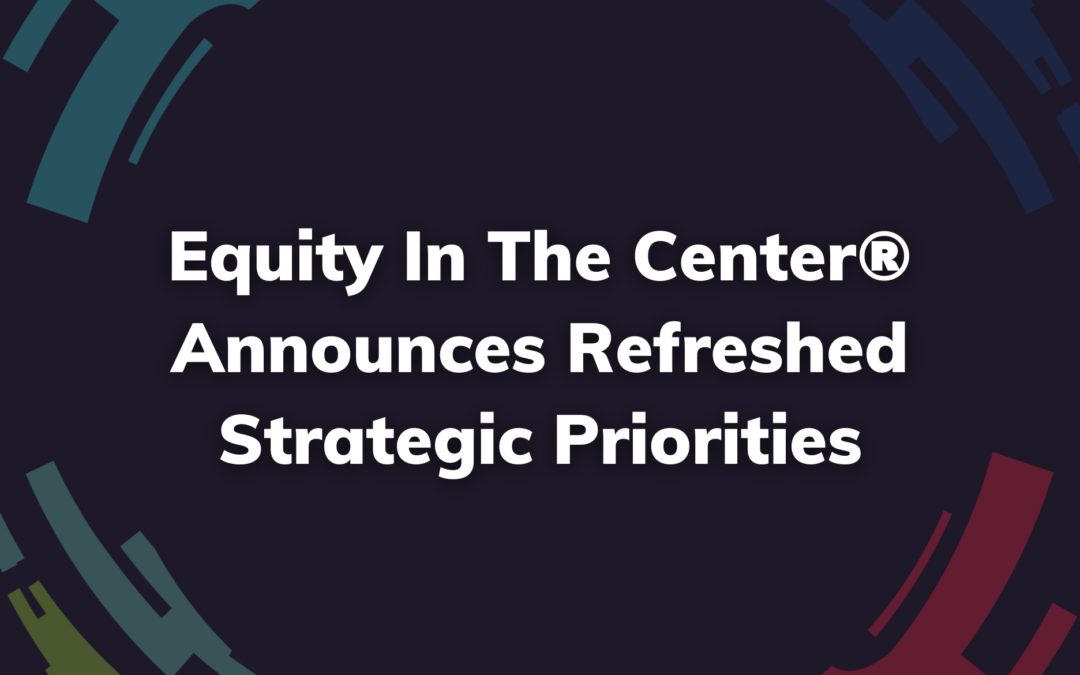The Master’s Tools Will Never Dismantle Philanthropy
POSTED ON AUGUST 19, 2019
By: Marsha Davis (Bio below)
During our “pause for the cause,” AMKRF has entered a time of organizational reflection and analysis building. As a part of our work, we are sharing reflections about what we’ve learned in the process of building relationships with one another and analyzing power, white supremacy, oppression, alongside liberation.
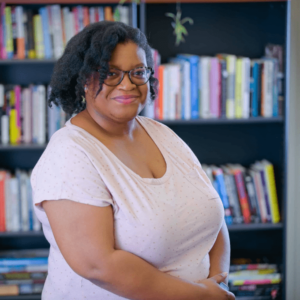
“If they don’t give you a seat at the table, bring a folding chair.” – Shirley Chisolm
I’ve learned many lessons from my family of Haitian immigrants. My parents came to this country seeking better opportunities for themselves and their children; and as I was growing up, they drilled into my head the importance of taking “my seat at the table.” While they believed in America’s potential, they weren’t naive about America’s reality. They knew that my status as a black woman in a white-led country left me vulnerable to all sorts of discrimination. My parents knew that in order to take advantage of all that America had to offer and to have the most self-determination over my own life, I had to be in the rooms where the decisions were made.
So I worked hard and navigated white supremacy and patriarchy like Neo from The Matrix. I had a singular mission: get a seat at the table. I made career choices that matched my ambition. I graduated from Harvard and set out to change the world. What my parents never told me, however, was what to do once I got my seat at the table. Like generations of parents from the African diaspora, they put all of their energy into pushing their children towards more opportunity, without an idea of what the landscape would look like when we got there.
My journey into leadership mirrors the journey of “The ‘Problem’ Woman of Color in the Workplace” depicted by the Center for Community Organizations (COCo).
I faced challenges that my education and family didn’t prepare me for. Like, what to do when your white boss asks you to convince another black employee that the organization doesn’t have a race problem. Or when institutional racism is so entrenched you can guess which employees work in administration by looking at the color of their skin. Or how to address legitimate concerns about how people of color (POC) are treated by your organization while finding the time to do the job you were actually hired to do.
Now that I have a seat at a philanthropic table, influencing how funds are redistributed, I’ve looked to my black queer feminist ancestors for guidance on how to lean into this moment. I find myself returning to Audre Lorde’s words, “The master’s tools will never dismantle the master’s house. They may allow us temporarily to beat him at his own game, but they will never enable us to bring about genuine change.”
I look to the work of social justice movement builders, and all of American history, to remind me that while I’ve been able to reap benefits from the systems of this country, the system is still rigged. Philanthropy sits at a complex point in our capitalist system, where it is both a tool of support for marginalized communities while also being funded from a system that allows the top 1% to horde wealth to the detriment of the remaining 99%.
As a first-generation American who has, in some ways, lived into the American dream, I am deeply personally invested in helping this country to embody the values it says that it espouses–values of human dignity, self-determination and an engaged democracy where everyone is empowered in their pursuit of happiness. Many of the “best practices” of philanthropy actually move funders further away from those values. For example, many funders have strict restrictions on what grantees can use grant dollars on, leaving nonprofit staff in the position of ignoring what is best for their organization and community so they can contort to fit the funders’ requirements. These practices enhance the control of the wealthiest and uphold the values of “the master’s house.”
I’m not interested in reproducing those systems at the Mandel Rodis Fund. With our team, I am grappling with the concept of “genuine change.” Is it possible to create a reparative relationship between funders and grantees where we are co-conspirators in the fight for liberation? Can we work together to dismantle the master’s house with the understanding that inequitable systems hurt us all, both the wealthy and the poor? Can we build alternative systems that strengthen and empower our entire community? I owe it to my ancestors, my immigrant family, and my current community of social justice warriors to do the work to answer these questions.
La filantropía no se desmantela con las herramientas del amo
Por Marsha Davis (Bio abajo)

Durante nuestra “pausa por la causa”, AMKRF ha entrado en un tiempo de reflexión organizacional y de desarrollo de análisis. Como parte de nuestro trabajo, estamos compartiendo reflexiones acerca de lo que hemos aprendido en el proceso de construcción de relaciones entre nosotrxs y analizando el poder, la supremacía blanca y la opresión, junto con la liberación.
“Si no te dan un puesto en la mesa, trae una silla plegable.” – Shirley Chisolm
He aprendido muchas lecciones de mi familia de inmigrantes haitianxs. Mis viejxs vinieron a este país en busca de mejores oportunidades para ellxs y sus hijxs, y durante mi crianza, me inculcaron la importancia de tomar “mi puesto en la mesa.” Aunque ellxs creían en el potencial estadounidense, no eran ingenuxs acerca de la realidad de Los Estados Unidos. Ellxs sabían que mi condición de mujer negra en un país liderado por gente blanca me hacía vulnerable a todo tipo de discriminación. Mis viejxs sabían que para poder aprovechar todo lo que Los Estados Unidos ofrecía y para tener la máxima autonomía sobre mi propia vida, yo tendría que estar en los lugares en donde se tomaban las decisiones.
Por eso trabajé muy duro y me desplacé por la supremacía blanca y el patriarcado como Neo en The Matrix. Mi misión era una sola: tener un puesto en la mesa. Tomé decisiones profesionales que coincidieran con mi ambición. Me gradué de Harvard y me dispuse a cambiar el mundo. Sin embargo, lo que mis viejxs no me dijeron fue qué hacer una vez tuviera mi puesto en la mesa. De la misma manera en que generaciones de padres y madres de la diáspora africana, ellxs pusieron toda su energía en impulsar a sus hijxs hacia más oportunidades, sin tener idea sobre cómo sería el panorama cuando llegaran ahí.
Mi travesía en el liderazgo se asemeja a la travesía de “The ‘Problem’ Woman of Color in the Workplace (La ‘problemática’ mujer de color en el trabajo) representada por la organización Center for Community Organizations (COCo).
Enfrenté muchos retos para los que ni mi educación ni mi familia me prepararon. Por ejemplo, qué hacer cuando tu jefe blancx te pide que convenzas a otrx empleadx negrx de que la organización no tiene ningún problema racial. O cuando el racismo institucional está tan arraigado que puedes adivinar cuáles empleados trabajan en posiciones administrativas solamente con mirar el color de su piel. O cómo hacerle frente a las preocupaciones sobre la forma en que tu organización trata a las personas de color (POC, por sus siglas en inglés) a la vez que tratas de encontrar el tiempo para hacer el trabajo para el cual te contrataron.
Ahora que tengo un puesto en la mesa de la filantropía, influyendo en cómo se redistribuyen los fondos, he recurrido a mis ancestros negrxs feministas y queer para que me guíen sobre cómo mantenerme firme en este momento. Me encuentro regresando a las palabras de Audre Lorde, “La casa del amo no se desmantela con las herramientas del amo. Puede que nos permitan vencerlo de momento en su propio juego, pero nunca nos permitirán causar un cambio verdadero.”
Recurro al trabajo de lxs constructorxs del movimiento de justicia social, y a toda la historia estadounidense, para recordarme que aunque yo he podido beneficiarme de los sistemas de este país, el sistema sigue estando amañado. La filantropía se encuentra en un punto complejo en nuestro sistema capitalista, en el que es una herramienta de apoyo para las comunidades marginadas, pero a la vez es financiada por un sistema que permite que el 1% acumule riqueza en prejuicio del 99% restante.
Como ciudadana estadounidense de primera generación, que de ciertas maneras ha vivido el sueño americano, tengo un profundo interés en ayudar a este país a ser un ejemplo de los valores que dice apoyar–valores de dignidad humana, de autonomía y de democracia participativa en donde todxs tengan poderío en su búsqueda de la felicidad. Muchas de las mejores prácticas” de la filantropía resultan alejando a lxs financiadorxs aún más de esos valores. Por ejemplo, muchxs financiadorxs tienen restricciones sobre cómo lxs becarixs pueden utilizar el dinero, poniendo al personal de las organizaciones sin fines de lucro en la posición de ignorar lo que es mejor para su organización y comunidad para poder retorcerse y ajustarse a los requisitos de lxs financiadorxs. Estas prácticas incrementan el control de lxs más adineradxs y sostienen los valores del “amo de la casa.”
No me interesa reproducir esos sistemas en el Mandel Rodis Fund. Junto con nuestro equipo, lucho por el concepto de “cambio verdadero.” ¿Es posible crear una relación reparadora entre financiadorxs y becarixs en la que conspiremos juntxs en la lucha por la liberación? ¿Podemos trabajar juntxs para desmantelar la casa del amo, entendiendo que los sistemas injustos nos perjudican a todxs, tanto a lxs adineradxs como a lxs pobres? ¿Podemos construir sistemas alternativos que fortalezcan y empoderen a toda nuestra comunidad? A mis ancestrxs, a mi familia inmigrante, y a mi comunidad actual de guerrerxs de la justicia social les debo el poder hacer el trabajo para responder a estas preguntas.

Marsha Davis,
Co-Director of Organizational Strategy and Practice,
The Tzedek Social Justice
Marsha was born and raised in New York City as a first-generation Haitian-American. Her introduction to social justice came from the many stories her parents shared of the Haitian Revolution. Marsha believes deeply in the power of community to create positive change and create equitable environments. She first dived into social justice as an educator, working to inspire students of color to pursue science in college. Marsha graduated from Harvard University with a BA in Molecular and Cellular Biology and earned a Masters in Science Education. She transitioned to nonprofit administration to broaden her impact on social justice movements. Marsha has over ten years of experience as an educator, administrator, and racial equity consultant. In 2012, Marsha founded and led The Trifecta Tribe, providing life coaching and retreats centered on the self-care needs of LGBTQ women of color. In her most recent role as the Chief Program Officer at the YWCA of Asheville she oversaw their grant-driven programs. In her capacity at Davis Squared Consulting, she works with organizations to create equitable internal cultures. Marsha lives in Asheville with her husband Marcus and demanding cat Milo.
